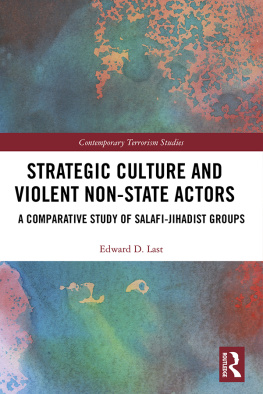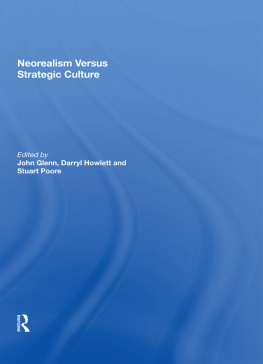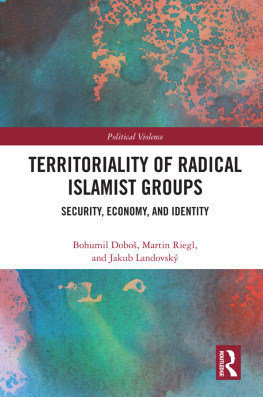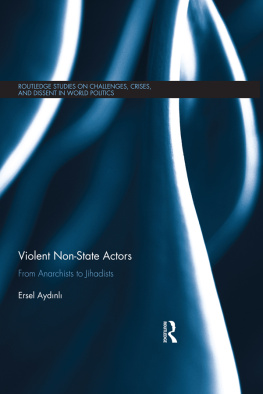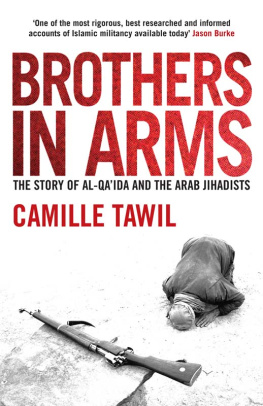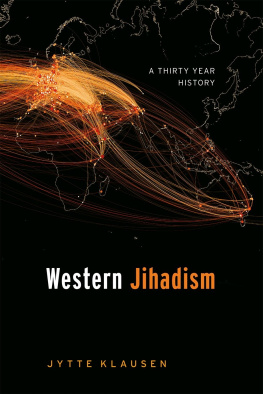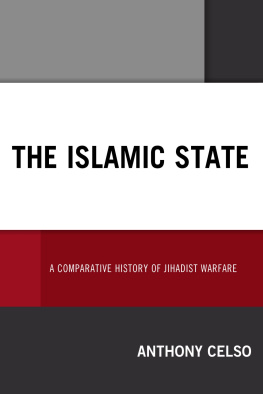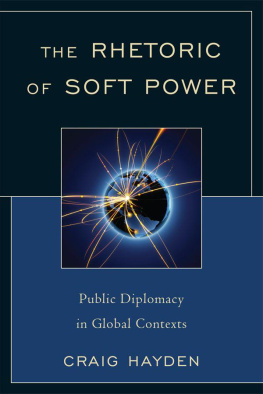Strategic Culture and Violent Non-State Actors
This book applies strategic culture concepts to violent non-state actors (VNSAs) in a comparative analysis.
In recent years, Al-Qaida in the Islamic Maghreb (AQIM) has become notorious for kidnapping Western hostages in north-western Africa and for its role in the short-lived Islamist takeover of Mali. The group, formerly known as the Salafist Group for Preaching and Combat, rebranded itself as an Al-Qaida franchise in 2007, leading to speculation of a change from its Algeria-centric agenda to an anti-Western one. This study compares and contrasts the ideas and behaviour of these two groups, using a strategic-cultural approach, and finds that, despite some commonalities, AQIM has a distinct strategic culture from Al-Qaida central, thereby debunking the notion of Al-Qaida as a monolithic movement. This is the first comparative analysis of violent non-state actors to employ a strategic-cultural approach and the first such study on AQIM. While strategic culture has traditionally been applied to states, this work adds to the emerging literature applying such approaches to non-state armed groups, and employs a novel conception of strategic culture consisting of narratives and practices.
This book will be of much interest to students of strategic culture, political violence, Middle Eastern politics and Security Studies in general.
Edward D. Last has a PhD in Politics and International Relations from the University of Southampton, UK.
Contemporary Terrorism Studies
Transnational Organized Crime and Jihadist Terrorism
Russian-Speaking Networks in Western Europe
Michael Fredholm
Victims and Perpetrators of Terrorism
Exploring Identities, Roles and Narratives
Edited by Orla Lynch and Javier Argomaniz
Understanding Deradicalization
Methods, tools and programs for countering violent extremism
Daniel Koehler
Deterring Terrorism
A Model for Strategic Deterrence
Elli Lieberman
Jihadism Foreign Fighters and Radicalisation in the EU
Legal, Functional and Psychosocial Responses
Edited by Inmaculada Marrero and Humberto Trujillo
Terrorist Decision-Making
A Leader-Centric Approach
Alex Mintz, John Tyson Chatagnier and Yair Samban
Strategic Culture and Violent Non-State Actors
A Comparative Study of Salafi-Jihadist Groups
Edward D. Last
For more information about this series, please visit: www.routledge.com/Contemporary-Terrorism-Studies/book-series/CTS
Strategic Culture and Violent Non-State Actors
A Comparative Study of Salafi-Jihadist Groups
Edward D. Last
First published 2021
by Routledge
2 Park Square, Milton Park, Abingdon, Oxon OX14 4RN
and by Routledge
52 Vanderbilt Avenue, New York, NY 10017
Routledge is an imprint of the Taylor & Francis Group, an informa business
2021 Edward D. Last
The right of Edward D. Last to be identified as author of this work has been asserted by him in accordance with sections 77 and 78 of the Copyright, Designs and Patents Act 1988.
All rights reserved. No part of this book may be reprinted or reproduced or utilized in any form or by any electronic, mechanical, or other means, now known or hereafter invented, including photocopying and recording, or in any information storage or retrieval system, without permission in writing from the publishers.
Trademark notice: Product or corporate names may be trademarks or registered trademarks, and are used only for identification and explanation without intent to infringe.
British Library Cataloguing-in-Publication Data
A catalogue record for this book is available from the British Library
Library of Congress Cataloging-in-Publication Data
Names: Last, Edward D., 1983- author.
Title: Strategic culture and violent non-state actors : a comparative study of Salafi-jihadist groups / Edward D. Last.
Description: Abingdon, Oxon ; New York, NY : Routledge, 2021 | Series: Contemporary terrorism studies | Includes bibliographical references and index.
Identifiers: LCCN 2020012338 (print) | LCCN 2020012339 (ebook) | ISBN 9780367223632 (hardback) | ISBN 9780429274510 (ebook)
Subjects: LCSH: Qaeda in the Islamic Maghreb. | Qaida (Organization) | TerrorismAfrica, North. | TerrorismMiddle East. | Islamic fundamentalismAfrica, North. | Islamic fundamentalismMiddle East. | Strategic cultureMiddle East. | Non-state actors (International relations)Middle East.
Classification: LCC HV6433.A3552 L37 2021 (print) | LCC HV6433.A3552 (ebook) | DDC 363.3250956dc23
LC record available at https://lccn.loc.gov/2020012338
LC ebook record available at https://lccn.loc.gov/2020012339
ISBN: 978-0-367-22363-2 (hbk)
ISBN: 978-0-429-27451-0 (ebk)
Typeset in Times New Roman
by Wearset Ltd, Boldon, Tyne and Wear
Contents
This book began its life as a PhD thesis, which has been modified and updated for publication. Its purpose is to apply a strategic cultural approach to the analysis of Salafi-jihadist violent non-state actors (SJVNSAs) through the case studies of Al-Qaida-central and Al-Qaida in the Islamic Maghreb (AQIM). This comparative study explores the extent to which Al-Qaida-central and its franchise, AQIM, share a common strategic culture and how they differ. Has AQIM implemented the strategic culture promulgated by Al-Qaida-central into its local context and, if not, how do they differ? Divisions within the Al-Qaida and Salafi-jihadist movements matter because they potentially undermine their self-representation of a cohesive front with a shared ideology, revealing differences in goals, strategy, ideology and motivations.
This study moves beyond the dominant state-centric approaches to global politics by applying the concept of strategic culture, usually reserved for analysing states, to violent non-state actors (VNSAs). However, existing conceptions of strategic culture are inadequate, largely failing to acknowledge the role of human agency in the constitution and evolution of strategic culture. This study moves beyond the largely ideational conceptions of strategic culture and the debate of whether strategic culture and behaviour can be disentangled. It employs a novel conception and method of strategic culture for analysing VNSAs, arguing strategic narratives and strategic practices are mutually constitutive of strategic culture. This study represents a significant, in-depth contribution to the literature on strategic culture and VNSAs.
I would like to thank the staff from the department of Politics and International Relations at the University of Southampton for their help at various stages of my PhD. I am indebted to my principal supervisor Dr John Glenn for his invaluable advice, patience, knowledge and guidance throughout my research; and to Dr Darryl Howlett, who was previously my Masters supervisor, for introducing me to strategic culture. I would also like to thank Dr Kamil Zwolski and Professor David Owen for their comments on my work; and Professor Andrew Mason for helping me narrow down my topic from my fuzzy ideas at the beginning of my PhD. I would also like to my external examiner, Dr Rob Frith of Portsmouth University, along with Dr Glenn and Professor Owen for encouraging me to turn my work into a book. Thanks also to my Arabic teachers, Dr Ouadie Sabia and Amal Ayoubi.

